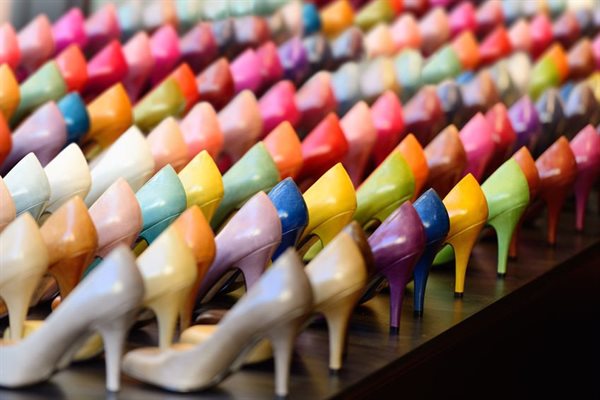If you're wondering if sustainable fashion really does exist in South Africa, the answer is yes but only on a small scale.

Emma Longden
With fast fashion on the rise locally, South Africans are opting to buy new items at low price points, feeding a false sense of wealth. The polyester garments they buy have a short life span, end up in landfills, are the biggest ocean polluters in the wash cycle, and are generally produced in unfavourable conditions.
The buzz from buying ‘new’ far outweighs the concerns regarding the factory conditions and environmental impact.
Over the last 2 years, there seems to have been a change in behaviour. The likes of The Ethical Market at The Biscuit Mill, Kamers/Makers and the emergence of other ethical brands are highlighting these changes.
But South Africans still have a long way to go in comparison to the European market (wholesale and retail) who are more aware of ethical fashion and want to know the process designers have followed to produce an ‘eco-fashion’ garment.
Conscious, circular design
When I started Sitting Pretty 10 years ago, I had no idea what sustainable or ethical fashion even meant. As I became more aware of the environmental impact of the fashion industry and how it did not align with my own values, I set out to make a change and only source natural and environmentally-friendly fibres. It was also important to work on the style, making it more versatile and wearable over a long period of time.
More focus on style, less ‘on trend’.
But it doesn’t stop with finding organic cotton and hemp and enviro-friendly fibres when creating my ranges, it also means putting an emphasis on care and respect being given to the people who produce and make my collection possible. As well as looking at circular design at the design and sourcing stage of the product. This is something we are starting to focus on more intently as it focuses on the entire lifecycle of the product.
Anika Kozlowski 8 Aug 2019 The consumption disconnect
I do believe consumers are becoming more aware of where their garments come from and more people are researching brands and want to know what they are doing about their footprint. But the final decision is often driven by price, and ethical fashion sells at a higher price point due to the often-challenging processes we need to follow. We need consumers to know how their garments evolve from an idea all the way through to their wardrobe.
This is where there is a disconnect across the board when it comes to consuming, whether it’s food or fashion. As consumers today, we are completely oblivious to the processes involved to produce our consumables.
If we see a chicken being killed, we won’t eat it. BUT, we’re happy to eat it when we buy it wrapped in plastic in a supermarket, or from a fast-food chain. The same goes for the fast fashion industry, hence people are happy to pay R50 for a shirt from a major retailer. Do we question who is making the shirt and how much that seamstress is earning? Do we question the fabric, is it natural, will it biodegrade, and so on.
I feel it all boils down to educating ourselves on where and how we spend our rands. Whether we really want to know, or if we would rather turn a blind eye, ignorance is bliss, right?
Consumers, including me, need to reprogramme our brains and subsequently our habits. There is a psychological pleasure associated with finding a good deal, and feelings of regret and missing out when we don’t. We each need to take cognisance of this and cultivate a sense of responsibility when it comes to our purchases.
Fashion will not be sustainable until people stop buying like they do.
We need a change in consciousness, in particular, the ‘happiness from shopping’ factor. We need to find our joy in experiences, not things. We need to educate consumers about the garments they are buying – we need to stop looking for a bargain and steer clear of ‘style-trends’, and instead opt for quality that will last.












































